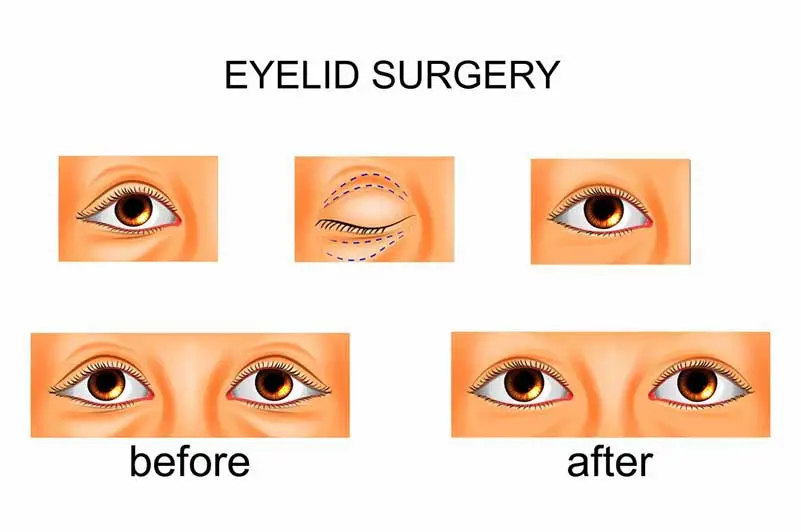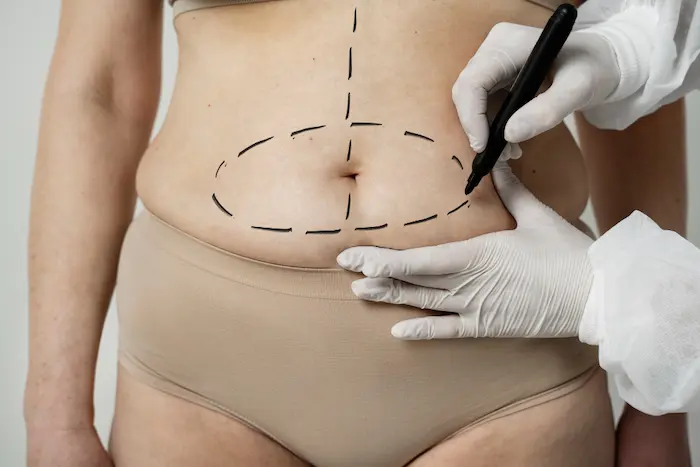
Finding Answers to Common Questions about Gynecomastia
Males often face swelling in the breast tissues, which result in excessively large breasts just like that of women. Doctors...
Males often face swelling in the breast tissues, which result in excessively large breasts just like that of women. Doctors term this specific condition Gynecomastia. Men suffering from this disorder are more prone to be extremely low on self-esteem and self-confidence.
Due to embarrassment, they opt out of the social gatherings, which further drags them to self-isolation. For all such men, the good news is that Gynecomastia surgery can help to reduce their male boobs appreciably, hence enabling their breasts to get back to their normal position. If you too identify yourself with this intro, the rest of the blog is just for you.
Gynecomastia – The technical explanation
In the human beings, sex hormones are responsible to control the primary and secondary sexual characters. While estrogen and progesterone is the female sex hormone, testosterone is its male counterpart. These hormones control fertility and sterility in both males and females. In addition, they also take care of several other secondary sexual characteristics including but not limited to
-
Growth of mammary glands
-
Deepening of the voice
-
Appearance of facial hair
When secreted in short amounts, these sex hormones create an imbalance and disturb the normal homeostasis. In males, especially the estrogen and testosterone hormones can suffer from imbalanced secretion, thus leading to a biological condition known as gynecomastia. Many men don't even realize they are suffering from this medical disorder due to lack of adequate awareness.
Questions about Gynecomastia
Here we have put forth some common questions about Gynecomastia along with their relevant answers to help you get more clarification and better understanding of this condition. Hope it helps you significantly.
1. What is gynecomastia?
Gynecomastia is a medical condition where the estrogen and testosterone levels are out of proportion. Usually, the male body produces both these sex hormones, with the level of testosterone level being comparably higher than estrogen. Hence, men do not develop any female secondary sexual characteristics since it suppresses the effect of estrogen.
However, when the estrogen level becomes more than the level of testosterone, the mammary gland and breast tissues start reproducing further, resulting in enlarged breasts in men. Although the cause of hormonal imbalance is still unknown, some medical and health conditions may lead to gynecomastia.
- Experts opine obesity as one of the main reasons why men can suffer from gynecomastia.
- In newborn babies, the levels of estrogen are higher than testosterone. As a result, they can have slightly enlarged breasts.
- During puberty, the levels of estrogen suddenly increase more than that of testosterone. This causes enlargement of breasts in males just like females, which eventually leads to Gynecomastia.
- In old age, the male body cannot produce the expected testosterone level. Therefore, the increased estrogen levels lead to gynecomastia.
2. What are the symptoms of gynecomastia?
It is crucial for everyone to understand the symptoms of gynecomastia so that they can recognize the medical condition and visit the doctor at the earliest. Following are some of the significant symptoms and disparities to look for:
- The breasts will start painting due to the enlargement of the tissues.
- Sometimes, inflammations can also occur in local areas surrounding the nipple and the circumference of the breast.
- Breasts and nipples will become tender, making it unbearable for you to touch them.
- When the condition prevails for a long time without any treatment, one can observe nipple discharge with mixed blood.
- Itching and redness around the nipples are among the other common symptoms of gynecomastia.
3. Can gynecomastia happen to anyone?
Yes, gynecomastia can happen to anyone, from newborn babies to elderlies. Since it relies on hormonal imbalance, there is no age restriction. Nearly half of the boys going through puberty can have gynecomastia in at least one of their breasts. Moving over, around 35 -40% of healthy males may also experience this problem sooner or later in their life. Therefore, it can affect almost anyone, so you can never consider yourself to be out of danger.
4. Is gynecomastia fatal to men?
There is no reported case of fatality of gynecomastia in men. However, males need to deal with several other side effects of this medical condition as well, unless they get proper treatment to restore their state to normal. Some of the possible impacts are as follows:
- Gynecomastia leads to enlarged breasts, which almost resemble that of females. This causes a lot of emotional distress in men.
- Sometimes, the lymph nodes swell up and can bleed. It often leads to lymphatic infection that needs immediate medical intervention.
- In rare cases, gynecomastia leads to breast cancers in men, hence prompt treatment is essential.
5. What are the treatment options for gynecomastia?
Males can undergo gynecomastia treatment in several ways. Although most doctors refer to surgical procedures, you can opt for medical treatment without complications. Following are the two different surgical options for gynecomastia.
Mastectomy: In this procedure, the surgeon will remove the mammary glands permanently from the impacted breast. For better assurance, doctors can eliminate both mammary glands.
Liposuction: In this process, the surgeon extracts the fat deposition in the muscles and subcutaneous layer through suction. It does not involve too many incisions, so the surgeons usually consider it during the initial stages.
6. Is it possible to prevent gynecomastia
Yes, you can avoid the condition of gynecomastia by adhering to a proper lifestyle. Hormonal imbalance often results due to lifestyle changes and impacts. So, if you change your diet, activity return, and habits, you will be at a lower risk of developing gynecomastia.
- Start with balancing your diet with more fiber, vitamins, and minerals. Keep carbs and fats to a minimum. Consume protein only if your physical activity limit is higher.
- Always optimize your exercise routine to ensure you burn enough calories every day. Do not skip exercises due to any reason.
- Avoid drinking alcohol, beer, and other such drinks that might cause an imbalance in testosterone and estrogen levels.
- Avoid excess consumption of sugar and junk food.
7. Is it safe to get gynecomastia surgery?
Yes, it is entirely safe to undergo gynecomastia surgery. If you have fears regarding the implications of the surgical techniques, you can always consult your surgeon. He will be the ideal person to discuss all your doubts such as:
- The recovery process
- Things you need to do before the surgery
- Recovery time after undergoing the surgery
- The associated pre-surgery or post-surgery risks
- Cost involved with the treatment
Once you feel satisfied with the responses of the expert, you can opt for mastectomy or liposuction based on the extent of how enlarged your breasts are. Yet again the suggestion of your surgeon will matter a lot in making the right decision.
8. Is there any risk of gynecomastia surgery?
There aren't many risks involved in gynecomastia surgery. However, it would help if you took precautions after going under the knife. This will help to avoid:
- Infection of the wound
- Intramuscular bleeding
- Pain and inflammations
- Fever
- Sensitivity and aches
9. What is the recovery routine and total duration of gynecomastia surgery?
The recovery time after undergoing liposuction is approximately two to three weeks. But when you opt for mastectomy or the complete removal of the mammary gland, the minimum time to recover will be approximately 1 month.
Wrapping up!
The condition of Gynecomastia accompanies a slew of significant aspects that you should be aware of. Proper knowledge can help you to avoid it well on time. It would help if you visit a doctor immediately after noticing the enlarged breasts or when you experience any of the symptoms that point to the ‘male boobs’ condition. Explain your situation to the expert so that he can proceed with the right treatment without wasting time. You won't have to worry about suffering from any side effects either, if you are taking all the precautions as suggested by your cosmetic surgeon.
So don’t wait, consult a doctor today and prevent further health complications. If you want assistance in looking out for the best surgeon to get away with this problem, we are always there to help you out. With the help of a robust database on our website, you can search for the most suitable surgeons near your preferred location. After singling out the best surgeon among them, you can fix an appointment with him and go on to discuss your entire condition as it is. It will help him to suggest the right treatment accordingly.






Comments
Login & Write comment